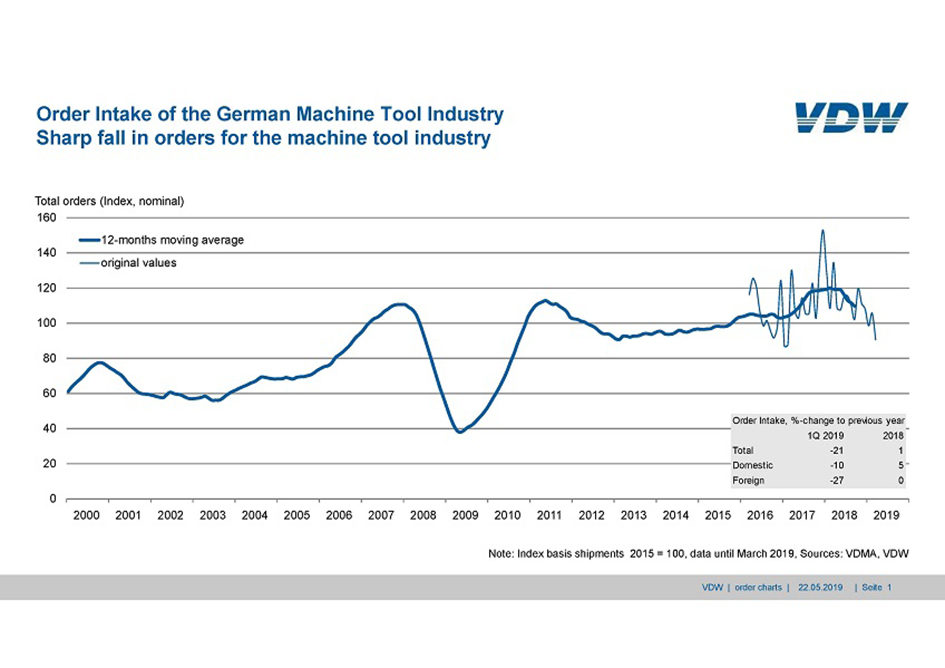Orders received by the German machine tool industry in the first quarter of 2019 were 21 per cent down on the same period last year. Orders from Germany fell by 10 per cent whereas those from abroad were down by 27 per cent.
“These dips are due not least to the extremely buoyant first half of 2018,” said Dr. Wilfried Schäfer, Executive Director of the VDW (Verein Deutscher Werkzeugmaschinenfabriken – German Machine Tool Builders’ Association), Frankfurt am Main, commenting on the result. This base effect is expected to decrease significantly in the second half of 2019.

Dr. Wilfried Schafer
“Nevertheless, the cooling of the global economy is now finally impacting on the German machine tool industry, too,” Schäfer continued. Domestic business, long a counterweight to the decline in foreign orders, has lost a great deal of momentum. The only bright spot is the euro zone, which is now much more stable and saw only a 3 per cent downturn. However, it can only stabilise the loss from the non-euro zone to a marginal extent.
The causes of the downturn are easily identified: politically motivated disruptions to world trade which affect the emerging markets, weak growth in China, structural weaknesses in the automotive industry (the largest client market), and the slump in the semiconductor industry. “In 2018, the international automotive industry halved its capital spending to less than 4 per cent compared with the previous year, and it is likely to plan an even lower figure for 2019,” explained Schäfer.
Machine tool order levels are below those of sales for the first time again since mid-2014. Sales increased by 6 per cent in the first three months of 2019. “Many companies are currently relying on their order backlog from the previous boom,” said Schäfer. The excessive delivery times are shortening again. This makes procurement more flexible again for customers and reduces plant production throughput times for manufacturers. Capacity utilisation In April of this year was at 86.5 per cent and thus below last year’s average.
“The VDW nevertheless expects production to grow by 1 per cent in 2019,” emphasised Schäfer from the VDW. On the other hand, he is expecting demand to pick up in the second half of the year. The order backlog should also provide sustenance for some time to come.






